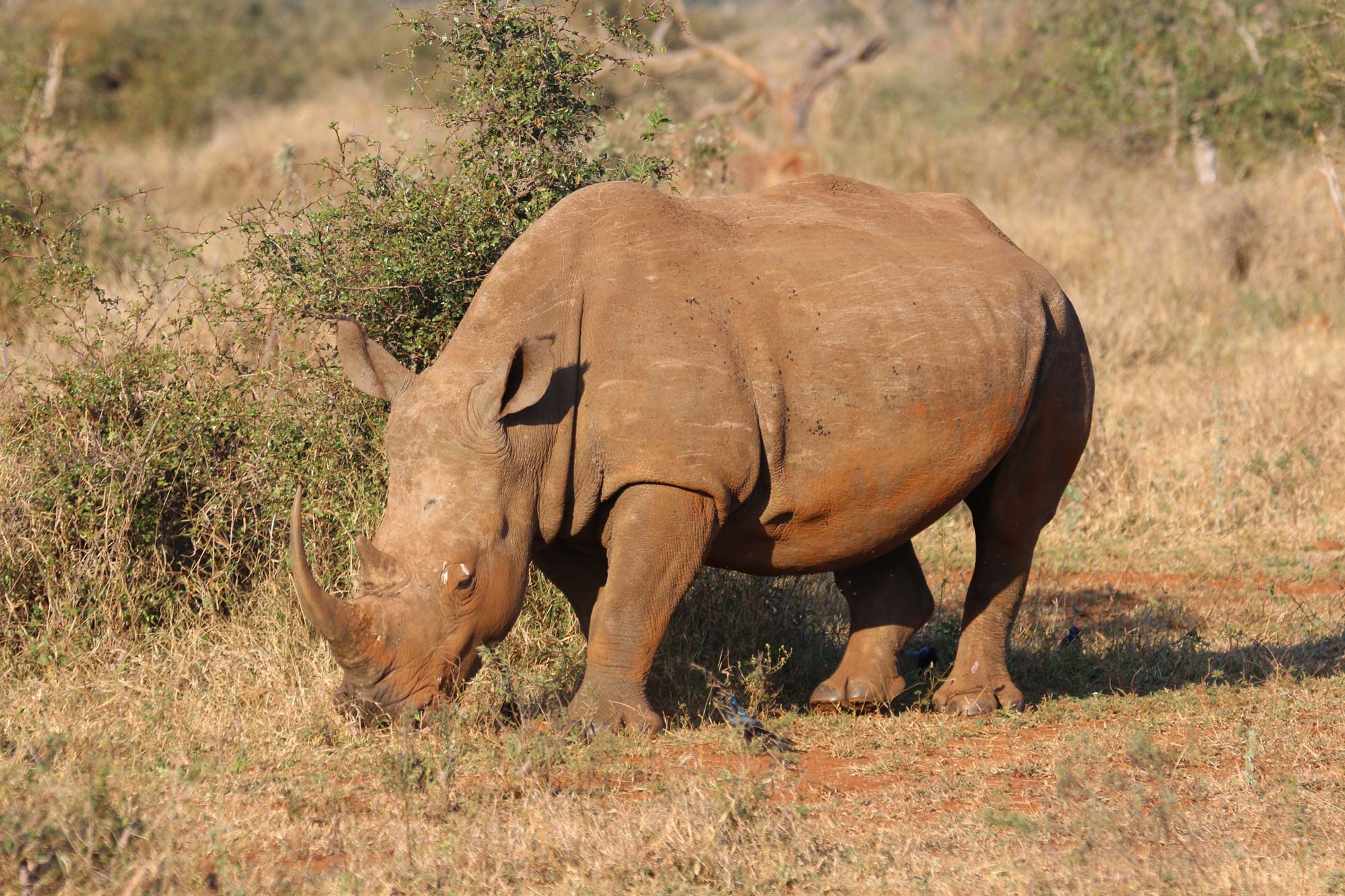| Principal Investigator: | Dr Bob Smith |
|---|---|
| Co Investigator | Dr Freya St, John |
| Project dates: | 2012 – 2013 |
| Funding: | Critical Environment Partnership Fund |
| Collaborators: | Private Rhino Owners Association & IUCN African Rhino Specialist Group |

The population recovery of rhinos in South Africa is one of conservation’s greatest success stories. From the beginning, conservationists sought to include private landowners in these recovery projects, as this increased the land available for rhinos and broadened the skills and funding base. They did this, in part, by helping develop financial incentives based on ecotourism, trophy hunting and live sales, and this helps explain why 25% of rhinos in South Africa are currently found on private and communally managed land. This makes the current spate of rhino poaching in South Africa a key threat both to successful rhino conservation and the financial viability of many private and communal reserves.
Such poaching presents an obvious direct threat to rhinos in South Africa but, just as importantly, it also undermines the incentives that encourage people to keep rhinos on their land. These landowners risk losing their animals through poaching and face higher enforcement costs and economic uncertainty. Thus, it unsurprising that anecdotal evidence suggests some reserve managers are selling the rhinos they own, or are putting off decisions to stock more. However, it is significant that this evidence is anecdotal because, while conservationists have developed sophisticated means of monitoring rhino numbers, there are no equivalent systems for understanding the human element underpinning the success of rhino conservation. This project is designed to overcome this problem and has the following aims:
1) To develop an online questionnaire for managers of private and communal reserves containing rhinos to provide information on factors that influence their decision to stock these species.
2) To work with the Private Rhino Owners Association and the IUCN Rhino Specialist Group to ensure the online questionnaire is used by rhino managers throughout South Africa.
3) To analyse the questionnaire data to provide a better understanding of the factors that influence the decisions made by rhino managers and so inform current rhino conservation policy and practice.

